Jan. 6 hearing: Key takeaways from 3rd day of testimony on Capitol attack
In its latest public hearing on Thursday, the House select committee investigating the Capitol insurrection zeroed in on former President Donald Trump’s effort to pressure his vice president, Mike Pence, to overturn Joe Biden’s 2020 election victory.
Following opening remarks from the committee Chairman Bennie Thompson and Vice Chair Liz Cheney, Rep. Pete Aguilar, D-Calif., took the lead, along with the panel’s senior investigative counsel, John Wood, in questioning witnesses and presenting the committee’s examination of the origins of a strategy pushed by lawyer John Eastman that Pence could unilaterally reject electoral votes cast in several states Trump lost, and how Trump’s relentless pressure campaign to convince Pence to do so put him in danger on Jan. 6.
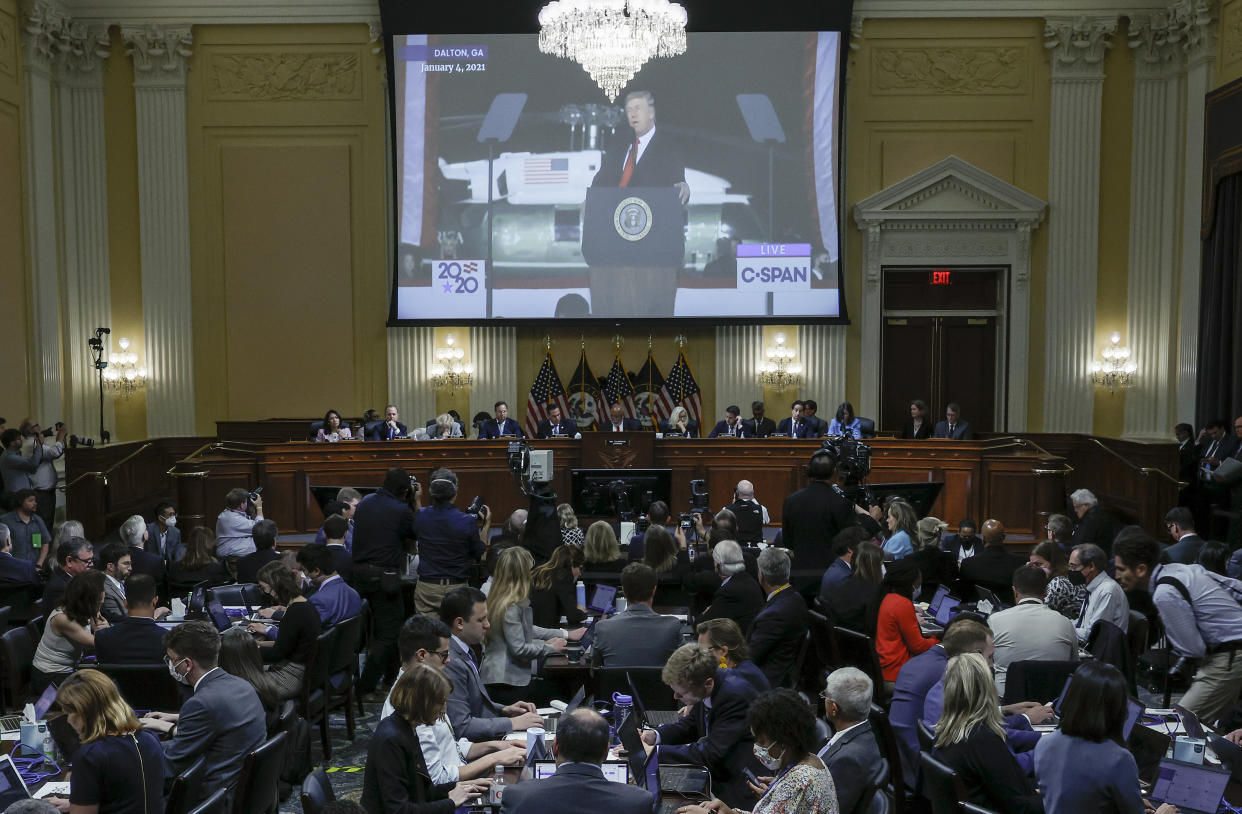
The hearing relied heavily on the testimony of witnesses, including Pence’s former chief counsel Greg Jacob and J. Michael Luttig, a former federal judge who advised Pence in the lead-up to Jan. 6, who appeared before the committee in person.
What were some of the most shocking revelations?
Eastman apparently knew the Pence plan was illegal
In his testimony to the committee, Greg Jacob described multiple conversations he had with John Eastman prior to Jan. 6 in which, Jacob said, Eastman acknowledged that Pence did not have any legal authority to reject certified electors from certain states.
In one such meeting in the Oval Office on Jan. 4, Jacob told the committee that Eastman acknowledged, in front of Trump, that his proposal would “violate several provisions of the Electoral Count Act,” but he rationalized that it could still be carried out because “in his view, the Electoral Count Act was unconstitutional,” Jacob said.

The following day, Jacob said that he and Eastman had another lengthy discussion, during which Jacob said Eastman conceded that if the Supreme Court were to consider the actions he was urging Pence to take on Jan. 6, then “we would lose 9-0.” Once again, Jacob said, Eastman rationalized this by saying that he didn’t think the Supreme Court was likely to get involved in this issue.
Jacob said Eastman even admitted that he didn’t think other vice presidents should have the authority to do what he was advocating for Pence to do on Jan. 6, 2021. Jacob said Eastman told him, “Al Gore did not have the basis to do it in 2000. Kamala Harris shouldn’t be able to do it in 2024. But I think you should do it today.”
Eastman suggested violence may be acceptable in order to overturn the election.
In a taped deposition played at the hearing, former Trump White House lawyer Eric Herschmann described one of his own conversations with Eastman about his view that Pence could overturn the election results. Herschmann said he told Eastman, “You’re completely crazy. You’re going to turn around and tell 78 million people in this country that your theory is this is how you’re going to invalidate their votes. Because you think the election was stolen.”

“They’re not going to tolerate that,” Herschmann said he warned Eastman. “You’re going to cause riots in the streets.”
Eastman’s response, according to Herschmann, was “words to the effect of, ‘There’s been violence in the history of our country in order to protect the democracy, or to protect the republic.’”
Trump was aware that a violent mob had descended on the Capitol when he attacked Pence in a tweet at 2:24 p.m. on Jan. 6.
The committee showed clips of taped depositions given by Ben Williamson, a former senior adviser to Trump’s White House chief of staff Mark Meadows, and former White House deputy press secretary Sarah Matthews, who testified that Meadows had informed Trump of the violence taking place at the Capitol before the former president tweeted that Pence “didn’t have the courage to do what should have been done to protect our Country and our Constitution.”
“It was clear it was escalating quickly,” Matthews said. “It felt like he was pouring gasoline on the fire by tweeting that.”
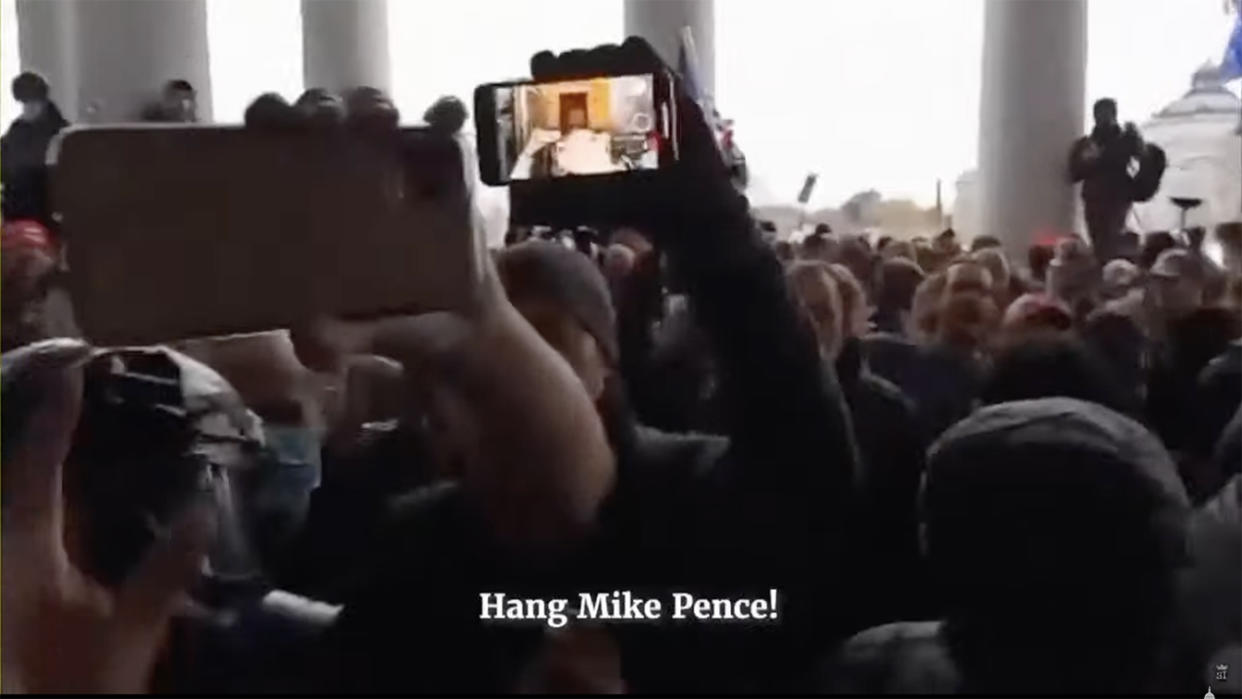
Aguilar said the committee’s probe found that the crowds both inside and outside the Capitol surged immediately after the president’s tweet, and presented video footage taken in the moments after 2:24 p.m. that showed rioters reacting angrily to the news that Pence had refused to send electoral votes back to the states. Aguilar also cited a recent court filing from the Justice Department's criminal case against members of the Proud Boys, which quotes an anonymous FBI informant who said that members of the far-right extremist group who were at the Capitol on Jan. 6 “would’ve killed Mike Pence if given the chance.”
“Make no mistake about the fact that the vice president’s life was in danger,” Aguilar said.
Eastman continued to urge Pence to block the vote certification even after rioters had been cleared from the Capitol.
The committee presented an email Jacob received from Eastman late in the evening on Jan. 6, once Pence and lawmakers had returned to the Capitol to finish certifying the Electoral College votes. In it, Jacob told the committee, Eastman attempted to argue that the day’s proceedings, which had been interrupted by rioters for several hours, had already violated the Electoral Count Act.
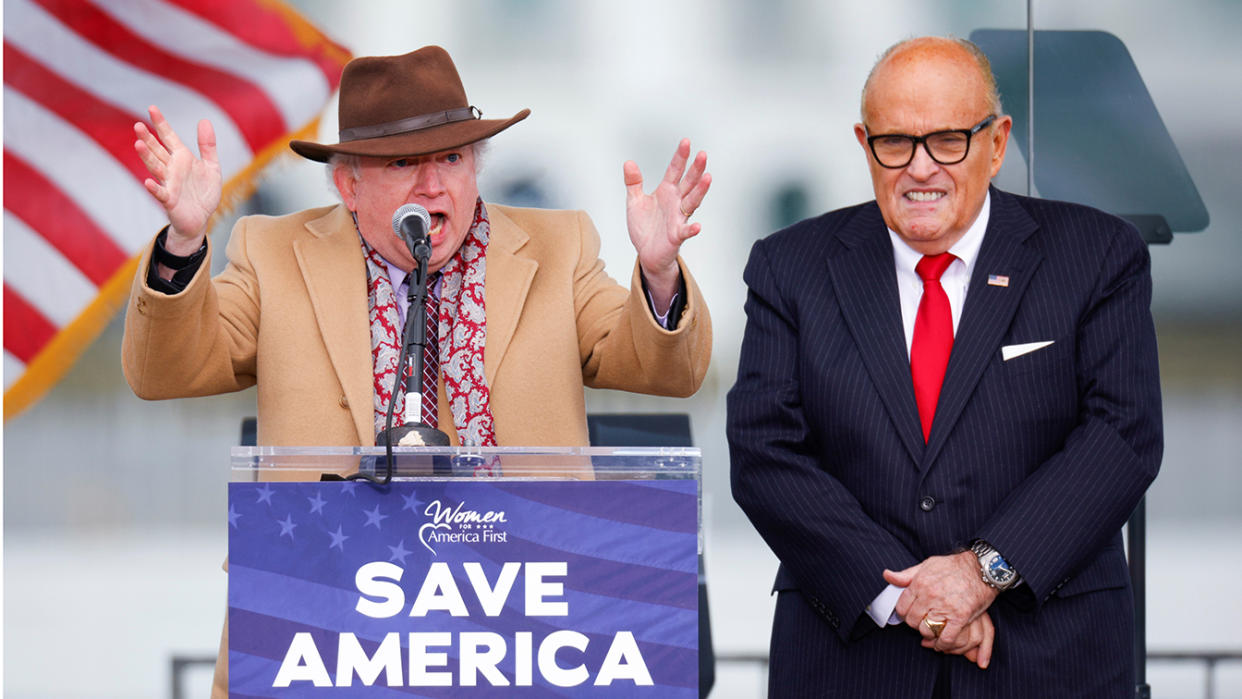
“So now that the precedent has been set that the ECA is not quite so sacrosanct as was previously claimed,” read the email displayed by the committee. “I implore you to consider one more relatively minor violation and adjourn for 10 days to allow the legislatures to finish their investigations, as well as to allow a full forensic audit of the massive amount of illegal activity that occurred here.”
Eastman sought a pardon from Trump after Jan. 6.
The select committee displayed another email Eastman sent to Trump’s personal attorney, Rudy Giuliani, in the days after the insurrection, in which he wrote: “I’ve decided that I should be on the pardon list, if that is still in the works.”
During the committee’s initial hearing last week, Cheney said House investigators have obtained evidence that in the wake of Jan. 6, “multiple” Republican members of Congress, including Rep. Scott Perry, R-Pa., pursued pardons from the outgoing president.

Luttig warned that Trump and his supporters remain a “clear and present danger to American democracy.”
In his testimony on Thursday, Luttig explained how Eastman’s proposal for Pence to overturn the 2020 election results was both illegal and unconstitutional, assessing that “had the vice president of the United States obeyed the president of the United States, America would immediately have been plunged into what would have been tantamount to a revolution within a paralyzing constitutional crisis.”
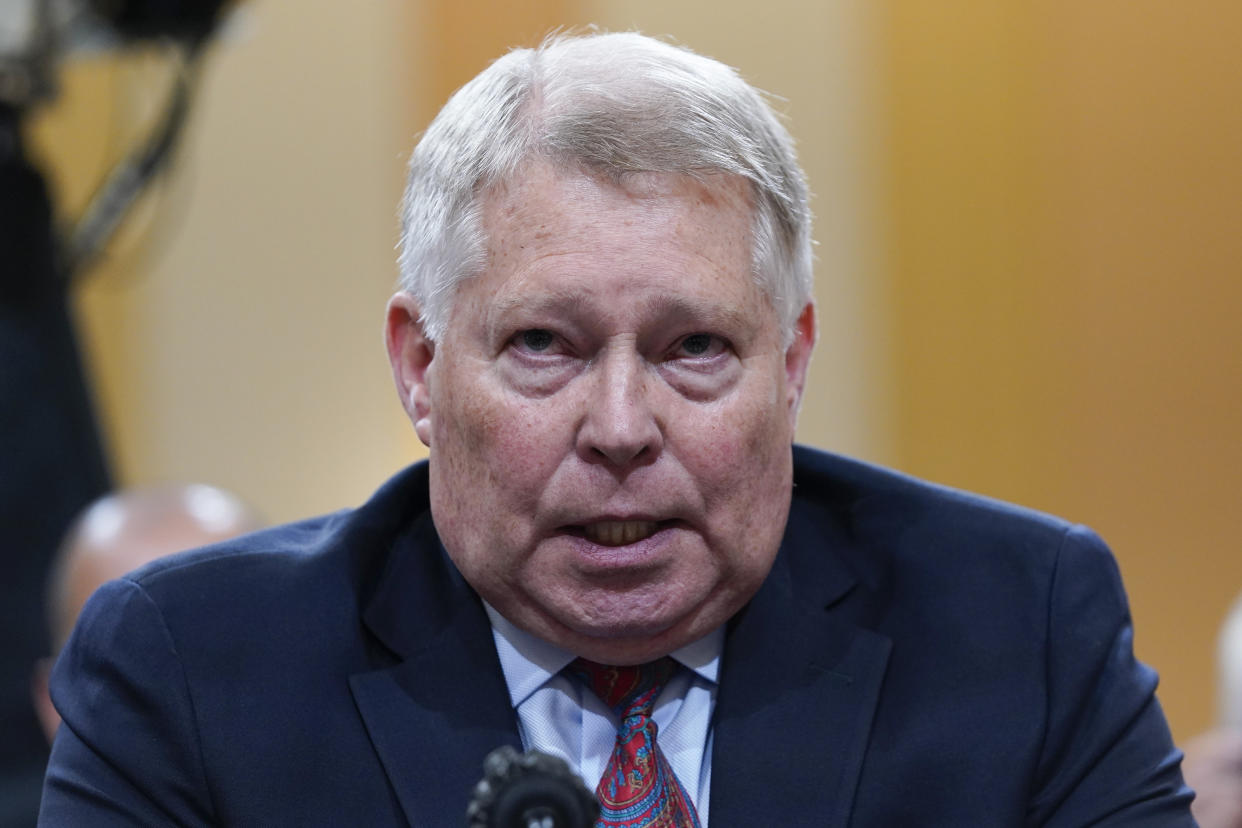
But while Pence’s actions on Jan. 6 may have steered the country away from that dire scenario, Luttig warned in his closing remarks that the ongoing efforts by the president and his supporters to undermine confidence in election security, continue to pose “a clear and present danger to American democracy.”
“The former president and his allies are executing that blueprint for 2024 in open and plain view of the American public,” Luttig told the committee.
Who were the witnesses?

As with the committee’s previous hearings, Thursday’s presentation featured a mix of live and taped testimony from a wide variety of witnesses. In addition to Jacob and Luttig, who appeared in person, the committee showed clips of depositions given by Pence’s former chief of staff Marc Short and his former national security adviser Keith Kellogg, as well as White House aides Williamson and Matthews. Viewers also heard more from other witnesses who have appeared via video at earlier hearings, including Herschmann, former senior Trump campaign adviser Jason Miller, Trump’s daughter Ivanka and her husband, Jared Kushner.
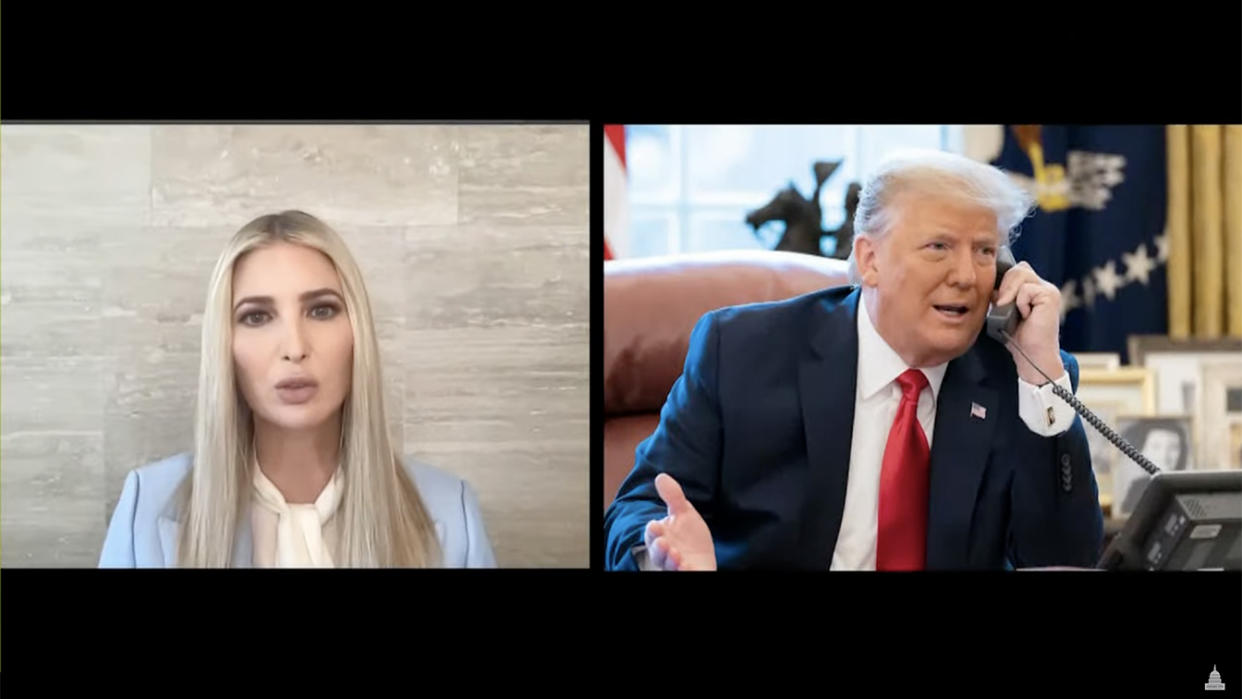
What’s next?
The committee is scheduled to hold two more public hearings next week. In her closing remarks, Cheney said the upcoming hearings would focus on efforts by Trump, Eastman and other members of the former president’s legal team to pressure Republican state legislatures, officials and others to submit fake slates of electors to Congress as part of their plot to overturn the results of the 2020 election.
